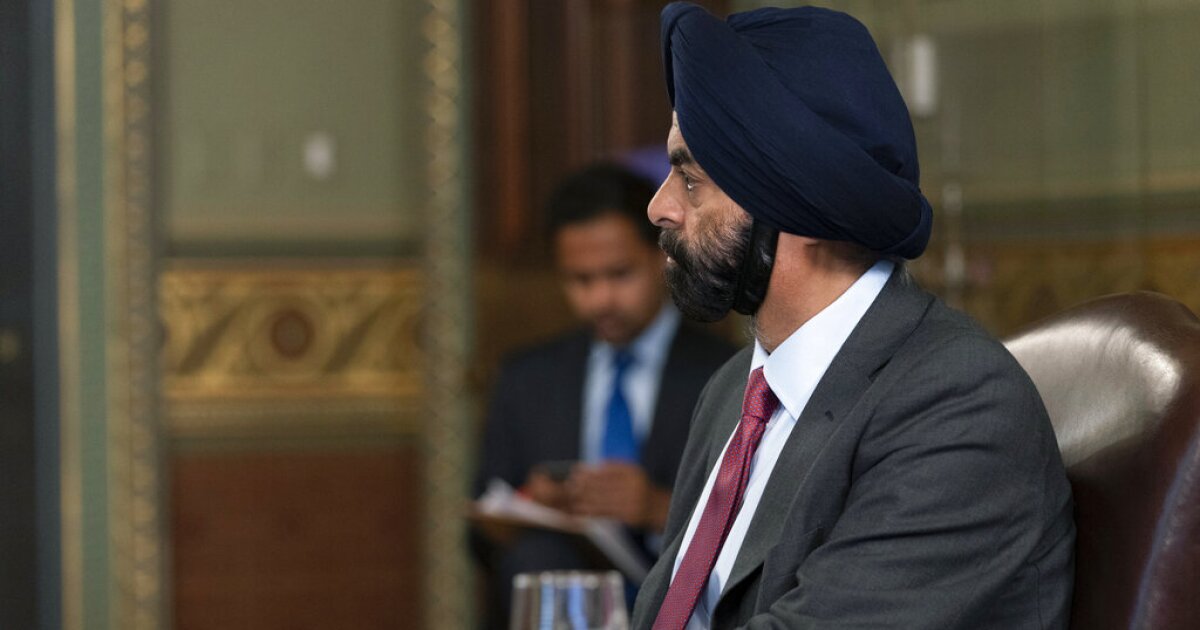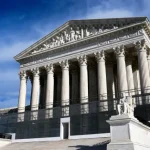

President Joe Biden’s nominee to lead the World Bank is vice chairman of a major investor in TikTok’s Chinese parent company, his potential appointment coming as lawmakers push to ban the Beijing-owned video app.
Ajay Banga’s nomination has prompted questions about the White House‘s vetting process at a time when bipartisan backlash over China’s suspected military and economic ambitions grows.
The company where Banga serves as vice chairman is General Atlantic. One of its most high-profile investments is Beijing-based ByteDance, TikTok’s parent company, which has found itself at the forefront of a push for regulating financial ties between the United States and China.
BIDEN FINDS A NEW TARGET IN WAR ON GOP BUDGET CUTTERS
Led by Chairman and CEO William Ford, the investment firm was characterized as a “key driver” surrounding the decision-making of a deal to take control of TikTok’s U.S. operations as it looked for ways to avoid a Trump administration ban in 2020, according to the Wall Street Journal.
General Atlantic has voiced opposition to efforts to curb U.S. investment in China, with some $7 billion in China since 2000. Ford addressed the possibility of regulation with Commerce Secretary Gina Raimondo directly, the New York Times reported. Ford, a ByteDance board member, has advised TikTok on “lobbying strategy” to counter the focus on its connections to the Chinese government.
In recent months, TikTok retained a powerful Biden-connected Washington consulting firm founded by top White House adviser Anita Dunn, Politico‘s Daniel Lippman reported Thursday, the latest indicator of the embattled social media company’s rocky path ahead.
Backlash against ByteDance is expected to increase as TikTok’s March 23 congressional hearing nears.
It’s not just TikTok. General Atlantic is invested in more than two dozen Chinese companies, including firms working in technology, finance, real estate, and biotechnology, according to its website.
An adviser to General Atlantic’s climate-focused fund, BeyondNetZero, Banga also sits on the board at Temasek Holdings, Singapore’s $298 billion state investment fund, which tallies its exposure to China at 22%.
He was president and CEO of Mastercard in 2020, reportedly earning $27.7 million as the company sought access to China’s $27 trillion payments market. Mastercard won approval from China’s influential central bank that same year.
Amid a widening split between Washington and Beijing, Biden’s decision to nominate a World Bank chief with close ties to China should prompt concern, said Jeff Hauser at the liberal Revolving Door Project.
“At a time when the Biden administration is moving to focus economic policy and international diplomacy on restraining China, it’s surprising that his pick to run the organization that exists at the absolute center of international economics and diplomacy is himself substantially and directly tied to China’s economy,” Hauser said.
In Biden’s budget released Thursday, the president stressed the need “to out-compete China” and “strengthen partner economies and support their efforts in pushing back against predatory efforts,” among other priorities.
His administration has passed new legislation to boost U.S. semiconductor and other manufacturing, a move China criticized.
Biden’s handling of China amid clashes over technology, markets, trade, and human rights already face scrutiny as the president eyes a likely reelection bid in 2024.
Hauser questioned the vetting process that elevated Banga under the circumstances.
“It’s weird for Biden to spend so much time wrangling the votes to secure greater investment in U.S. manufacturing and technology while empowering a figure like Banga, whose work the past couple of years is focused in no small part on strengthening the Chinese economy, including the highly controversial ByteDance,” Hauser said.
The White House declined to comment on the vetting process for Banga.
Biden has directed his administration to weigh new investment restrictions targeting Beijing and endorsed legislation that would give the president the power to force the sale of foreign-owned companies when a national security risk is assessed.
If appointed, Banga would lead the multilateral bank at a time of upheaval in the competition for economic and geopolitical sway as Beijing secures increasing purchase through its “One Belt, One Road” initiative.
In a hearing before the Senate Intelligence hearing, Director of National Intelligence Avril Haines warned this week that China “is increasingly challenging the United States, economically, technologically, politically and militarily around the world.”
“China … remains our unparalleled priority,” Haines said.
The longtime executive is expected to travel to China on a listening tour as he campaigns for the World Bank role and was endorsed on Thursday by the United Kingdom, a member. Founded in 1944, the bank is traditionally led by a U.S. nominee.
Banga, 63, would replace World Bank President David Malpass, who announced his resignation last month following a controversy over his response to a question about the scientific basis for climate change.
CLICK HERE TO READ MORE FROM THE WASHINGTON EXAMINER
His nomination comes as momentum to address climate change through an overhaul of the bank is underway among its member economies and as the Biden administration begins implementing its signature climate law.
Biden praised Banga as a business leader with a history of forging public-private partnerships to address “financial inclusion” and climate change.
“Ajay is uniquely equipped to lead the World Bank at this critical moment in history,” Biden said in a statement.






